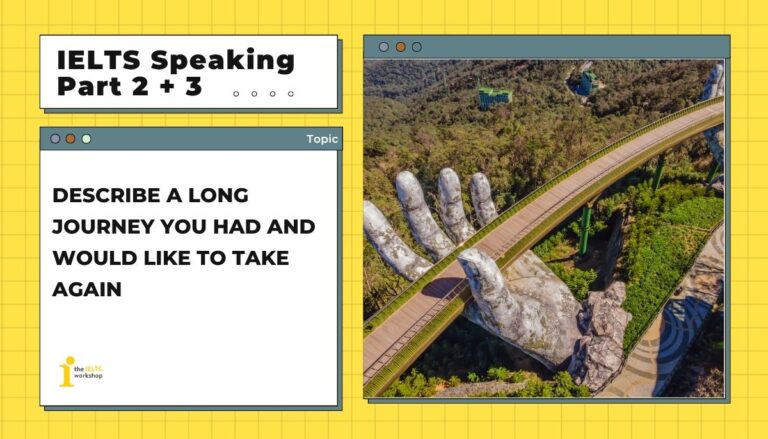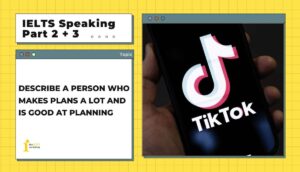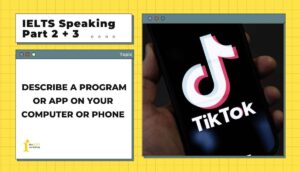Bài mẫu chủ đề “Describe a long journey you had and would like to take again” của thầy Phạm Khánh Nam cung cấp ý tưởng mạch lạc, từ vựng đa dạng và chiến lược trả lời hiệu quả cho IELTS Speaking Part 2.
Part 2: Describe a long journey you had and would like to take again
You should say:
- when/where you went
- who you had the journey with
- why you had the journey
- and explain why you would like to have it again
1. Bài mẫu (Sample)
Back in my junior year of university, I took the overnight train from Ha Noi to Da Nang with my classmates. We were drained after exams and wanted to visit a friend without rushing, so the sleeper seemed like the perfect option. My friends and I all agreed on the idea of taking a slow route that would allow us to talk, nap, and switch off for a while.
After we boarded the train and it began to move, the carriage rumbled softly, and the air smelled of metal and tea. We shared a four-berth cabin, traded snacks, and told stories to the rhythm of the tracks. Around dusk, I pulled up the blind and watched rice fields turn into low hills, then a thin line of sea. Countless wonderful scenes kept unfolding, making the landscape feel generous and the hours feel gentle.
Between stops at small stations, the platform lights washed through the cabin, and vendors appeared through our windows along with the bustling flow of people passing by. Tired of staying in one place, we slid our door open and ended up playing cards with the family in the next compartment. We also chatted about how and why we took the trip, making the two cabins feel like one friendly room for a while. Just after sunrise, we finally arrived in Da Nang, greeted by the sight of our friend waving from the platform barrier.
Reflecting on this wonderful experience, I would love to try it again because the long train ride changed my perception of how people connect. Strangers become neighbors, smart devices disappear, and conversations deepen when the signal drops. If I could repeat that trip, I would bring a dedicated camera to capture the scenery and savor the slow moments as time stretches.
Sample band 6.5+ by Pham Hoang Khanh Nam, IELTS Teacher at The IELTS Workshop
2. Từ vựng (Vocabulary)
- overnight train: tàu chạy đêm, đi qua đêm để tới nơi sáng hôm sau
- sleeper: tàu hoặc khoang giường nằm
- switch off: tạm ngắt kết nối để nghỉ ngơi, không check điện thoại
- rumbled softly: rung lắc nhẹ và phát ra tiếng “lộc cộc” êm
- four-berth cabin: khoang tàu có bốn giường
- rhythm of the tracks: nhịp điệu tiếng bánh xe lăn trên đường ray
- pulled up the blind: kéo rèm cửa sổ lên
- unfolding: mở ra từ từ, chậm rãi theo thời gian
- platform lights: đèn chiếu sáng sân ga
- bustling flow: dòng người tấp nập
- compartment: khoang tàu, phòng nhỏ
- signal drops: mất sóng điện thoại hoặc mạng yếu
- time stretches: thời gian kéo giãn, trôi chậm và thư thả
Xem thêm: Cách học từ vựng IELTS hiệu quả từ thầy Đặng Trần Tùng 9.0
Part 3:
1. Do you think it is a good choice to travel by plane?
If time is tight, flying is the wise choice because it turns a full day on the road into a short hop. For unexpected business trips, a morning flight gives you an afternoon on the ground. That said, airports come with hidden time, from check-in to security to transit, so taking a flight is not always as time-saving as it seems. Cost is also a concern, as even the most affordable fares are not accessible to some. If given the choice, I would fly and accept the trade-offs when under a tight schedule. For a trip where the journey should be enjoyable, I would go for the night train or a coach instead.
- short hop: chặng bay ngắn
- hidden time: thời gian ẩn (do xếp hàng, chờ đợi)
- affordable fares: mức giá vé rẻ, phải chăng
- trade-off: sự đánh đổi giữa các lựa chọn
2. What are the differences between group travelling and travelling alone?
Group travel helps spread costs and creates more shared stories, yet it also comes with compromise because time and budgets among members can vary and rarely align. Planning moves more slowly, and the safety net is bigger, which helps first-timers and anyone who wants support from others. Solo travel, on the other hand, gives full control over one’s pace and focus, allowing for the pursuit of personal interest and curiosity without having to negotiate every hour. The flip side is the decision fatigue, as well as the loneliness that kicks in when plans fall through.
- safety net: lớp lưới an toàn, có người hỗ trợ
- full control over one’s pace: kiểm soát hoàn toàn nhịp độ chuyến đi
- decision fatigue: mệt mỏi vì phải quyết định liên tục
- fall through: đổ bể, không thành
3. What do we need to prepare for a long journey?
For long trips, first you need to settle on the time and route, with buffer windows so a spontaneous delay does not break the plan. Second is health and safety, which includes basic medicine, copies of ID, and someone at home who knows your itinerary. Having mixed payment methods and offline maps can also come in clutch in case there is no signal. Finally comes context, like learning simple phrases for quick requests and local rules, just in case. When these elements are set, you will travel much more smoothly and efficiently.
- buffer window: thời gian dự phòng
- itinerary: lịch trình chuyến đi
- mixed payment methods: nhiều phương thức thanh toán
- offline maps: bản đồ ngoại tuyến
- come in clutch: trở nên hữu ích đúng thời điểm
Tạm kết
Hy vọng bài mẫu trên đã giúp bạn hình dung rõ cách triển khai ý tưởng và sử dụng ngôn ngữ phù hợp khi gặp chủ đề Describe a long journey you had and would like to take again trong IELTS Speaking Part 2 & 3. Tham khảo các nguồn tài liệu hữu ích như KHO BÀI MẪU IELTS SPEAKING và Bộ đề dự đoán IELTS Speaking cập nhật mới nhất.
HỌC IELTS MIỄN PHÍ – lớp học độc quyền chỉ có trên website của The IELTS Workshop. Đăng ký để bắt đầu lộ trình học bài bản cùng thầy cô tại TIW ngay nhé!









